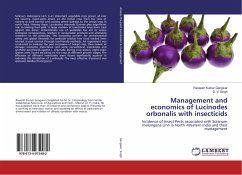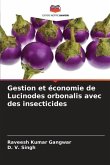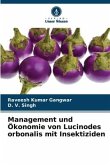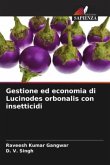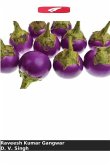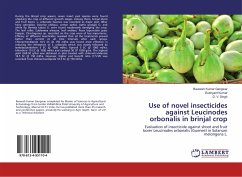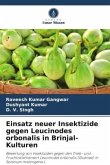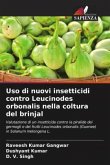Solanum melongena Linn is an important vegetable crop grown all over the country. Insect-pests attack on the brinjal crop from the time of nursery to until harvest and causing severe damage to the brinjal crop in north India. Among these, Leucinodes orbonalis Guenee play asignificant role to limiting fruit yield. A large number of insecticides have been tried against this borer; indiscriminate use of pesticides has led to severe ecological consequences, residues in consumable products and ultimately resistance to the pesticides. The increasing concern for environmental safety and global demands for pesticide residue free food evoked keen interest in pest control through eco-friendly methods. An experiment was conducted to evaluate the pest succession of brinjal crop, their nature of damage economic importance and some conventional insecticides and synthetic pyrethroids against L. orbonalis. During crop season, eight insect species were found attacking on the crop at different growth stages. The efficacies of different insecticides were found significantly superior in reducing the infestation of L.orbonalis. The most effective treatment was spinosad, Bacillus thuringiensis.
Bitte wählen Sie Ihr Anliegen aus.
Rechnungen
Retourenschein anfordern
Bestellstatus
Storno

